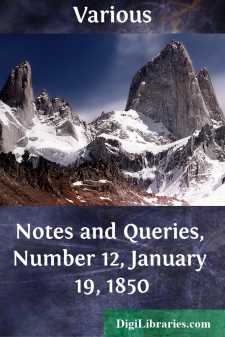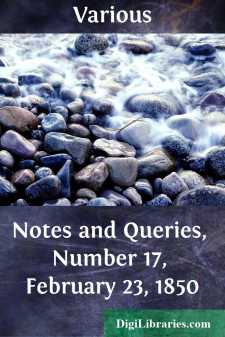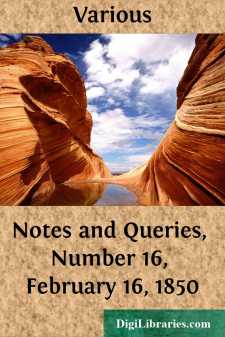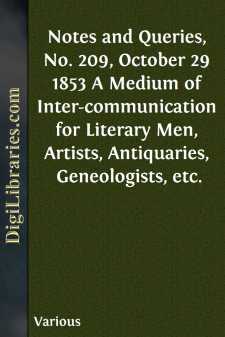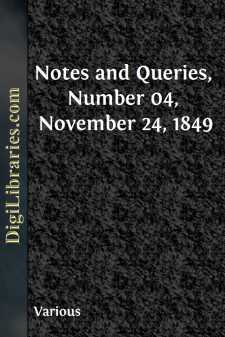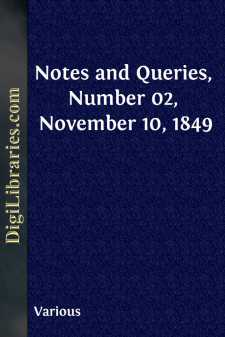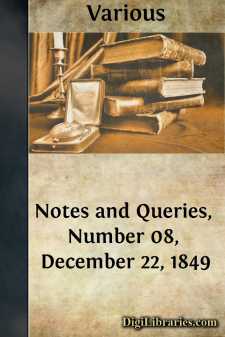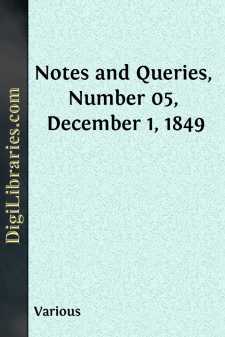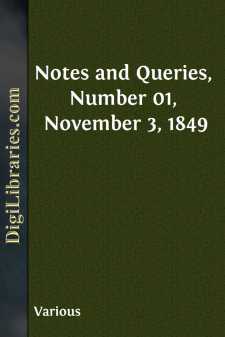Categories
- Antiques & Collectibles 13
- Architecture 36
- Art 48
- Bibles 22
- Biography & Autobiography 813
- Body, Mind & Spirit 142
- Business & Economics 28
- Children's Books 14
- Children's Fiction 11
- Computers 4
- Cooking 94
- Crafts & Hobbies 4
- Drama 346
- Education 46
- Family & Relationships 57
- Fiction 11829
- Games 19
- Gardening 17
- Health & Fitness 34
- History 1377
- House & Home 1
- Humor 147
- Juvenile Fiction 1873
- Juvenile Nonfiction 202
- Language Arts & Disciplines 88
- Law 16
- Literary Collections 686
- Literary Criticism 179
- Mathematics 13
- Medical 41
- Music 40
- Nature 179
- Non-Classifiable 1768
- Performing Arts 7
- Periodicals 1453
- Philosophy 64
- Photography 2
- Poetry 896
- Political Science 203
- Psychology 42
- Reference 154
- Religion 513
- Science 126
- Self-Help 84
- Social Science 81
- Sports & Recreation 34
- Study Aids 3
- Technology & Engineering 59
- Transportation 23
- Travel 463
- True Crime 29
Sort by:
by:
Various
ORIGIN OF A WELL-KNOWN PASSAGE IN HUDIBRAS. The often-quoted lines— "For he that fights and runs away May live to fight another day," generally supposed to form a part of Hudibras, are to be found (as Mr. Cunningham points out, at p. 602. of his Handbook for London), in the Musarum Deliciæ, 12mo. 1656; a clever collection of "witty trifles," by Sir John Mennis and Dr. James Smith....
more...
by:
Various
OUR PROGRESS We have this week been called upon to take a step which neither our best friends nor our own hopes could have anticipated. Having failed in our endeavours to supply by other means the increasing demand for complete sets of our "NOTES AND QUERIES," we have been compelled to reprint the first four numbers. It is with no slight feelings of pride and satisfaction that we record the...
more...
by:
Various
KING ALFRED'S GEOGRAPHY OF EUROPE. The sketch of Europe, which our illustrious Alfred has inserted in his translation of Orosius, is justly considered, both here and on the Continent, as a valuable fragment of antiquity; and I am sorry that I can commend little more than the pains taken by his translators, the celebrated Daines Barrington and Dr. Ingram, to make it available to ordinary readers....
more...
by:
Various
NOTES. DANIEL DE FOE AND HIS GHOST STORIES. I feel obliged by your intelligent correspondent "D.S." having ascertained that De Foe was the author of the Tour through Great Britain. Perhaps he may also be enabled to throw some light on a subject of much curiosity connected with De Foe, that appears to me well worth the inquiry. Mrs. Bray, in her General Preface prefixed to the first volume of...
more...
by:
Various
THE SCOTTISH NATIONAL RECORDS. The two principal causes of the loss of these records are, the abstraction of them by Edward I. in 1292, and the destruction of a great many others by the reformers in their religious zeal. It so happens that up to the time of King Robert Bruce, the history is not much to be depended on. A great many valuable papers connected with the ancient ecclesiastical state of...
more...
by:
Various
NOTES LATIN EPIGRAM AGAINST LUTHER AND ERASMUS. Mr. Editor,—Your correspondent "Roterodamus" (pp. 27, 28) asks, I hope, for the author of the epigram which he quotes, with a view to a life of his great townsman, Erasmus. Such a book, written by some competent hand, and in an enlarged and liberal spirit, would be a noble addition to the literature of Europe. There is no civilised country that...
more...
by:
Various
A FEW WORDS TO OUR FRIENDS. In our opening Address we carefully avoided any thing at all approaching to a boast of what we would, or even what we hoped to perform. We stated that "we would rather give a specimen than a description." We are now in like manner unwilling to point as exultingly, as we think we might, to the position which we have already taken. But there is a vast difference...
more...
by:
Various
WHAT BOOKS DID OTLOH WRITE? Sir,—In Dr. Maitland's able vindication of the Dark Ages (p. 419. 1st ed.), he concludes his interesting extract from the scribe Otloh's account of himself by saying:—"One would like to know what books they were which Otlohnus thus multiplied; but this, perhaps, is now impossible." I have it accidentally in my power to identify two at least of the...
more...
by:
Various
LORD CHATHAM--QUEEN CHARLOTTE.Original Letter, written on the Resignation of Mr. Pitt, in 1761--Public Feeling on the Subject, and Changes at Court in consequence--First Impressions of Queen Charlotte.[The following valuable original letter is now published for the first time. It will be found to be of very considerable historical curiosity and interest. The resignation of the Great Commoner in 1761,...
more...
by:
Various
The nature and design of the present work have been so fully stated in the Prospectus, and are indeed so far explained by its very Title, that it is unnecessary to occupy any great portion of its first number with details on the subject. We are under no temptation to fill its columns with an account of what we hope future numbers will be. Indeed, we would rather give a specimen than a description; and...
more...


